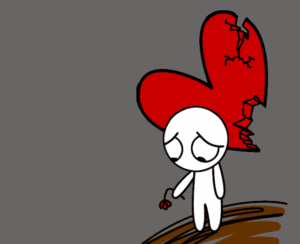What can you possibly say to someone who is grieving, without making it worse?
Tongue-tied and uncertain.
Have you ever been faced with not knowing what to say to a loved one or a friend who is grieving? I have been on both sides of this situation. Before my son’s death, I was just as tongue-tied and uncertain about what to say as most of us are. I think I knew to avoid saying certain things, but was left wondering what would be most helpful. Sometimes I let the moment to say something pass because of my hesitancy. Then, after my son’s passing, I experienced first-hand the awkward moments when people don’t know what to say or do to convey their condolences. Here’s what I’ve learned.
Avoid using clichés or trying to cheer someone up.
In the midst of sadness and despair, usually the last thing anyone wants to hear is, “Cheer up” or, “Think of something positive.” Most of us would know this isn’t helpful. Nor do the grieving feel much like hearing, “Everything’s going to be okay.” It may be true that everything will be okay eventually. Healing is possible and probable. However, saying so isn’t particularly wise.
If you notice, the phrase, “I’m so sorry for your loss,” has also become quite overused and clichéd. We are sorry that they are in pain, and we are hoping that they will be feeling better soon. The truth is, another’s grief can reach into places within our own psyche where sadness and pain lay dormant. Being with someone else’s pain often brings our own up. It takes courage to just stand in the midst of our own emotions, stay in the moment, and say very little.
Definitely avoid predictions for the future.
I had people say to me that I would never be the same, that I would always feel the loss and have to live with a hole in my heart that would never heal. I knew they meant well, but I had to cancel out these predictions immediately upon hearing them. I also heard from my son’s girlfriend that she was being told that in 90 days she’d find someone else and her sadness would be gone–kind of like buying another puppy to replace the one that was killed. I’m not sure where these predictions come from, and I believe the people saying them were trying to empathize or make us feel better, but these are not welcome comments.
Tears are okay.
I have learned that my tears are a sign that I’m alive, in touch with my feelings, and that my heart is open. My eyes may well up and my lips may tremble when I’m talking about what happened, or I have moments of sad or sweet memories. It’s okay. I trust and appreciate friends who can just be with me and give me a hug if it feels right. I’ve found that sometimes I’m the one needing comfort, and at other times, I end up being the one doing the comforting. Sharing tears has the power to bring us closer to each other. It taps into our common humanity.
What is most helpful?
So, what do you say to someone who is grieving? I was on the receiving end of many condolence messages and cards and emails and calls after my son died. I have treasured and saved many of them. I hungered for any stories about my son that his friends could share with me. I received copies of photos that I had never seen and they were so special. I loved opportunities to reminisce and talk about his life. Laughter was very healing. I found it easy to hear, “I don’t know what to say, but I want you to know I’m here for you.” Or, “I can’t imagine how you are feeling, but I’m sending you a hug.” One dear friend wrote that she did not know what to say, but she could make a really good homemade apple pie if I would like one. It was one of the best pies I have ever eaten. We sat together, ate some pie, talked about my son, shed some tears, and I will forever remember how delicious the moment tasted.
About the Author
The sudden accidental death of Robyn’s youngest son, Michael Ortego, in 2013, plunged her into the depths of grief and taught her that even in unspeakable sorrow she could find hope and healing. Since Michael’s death, she has been passionate about how we can use the power of grief to open doorways into new, more powerful ways of saying “yes” to life. She believes we can learn to live joyfully from a broken-open heart and that the sacred soil of sorrow is rich for growing our souls.
Robyn DeLong has been a successful top-producing Realtor in Sacramento, CA, since 1999. She is a former college professor with a Masters in Interpersonal Communication, a published author, speaker, and personal development coach. She has appeared on the Sacramento cable network and has been trained by some of the best, including Mary Morrissey, Bob Proctor, Jack Canfield, and Joe Dispenza.
She published her story, From Grief to Grace…A Mother’s Journey, in June 2014. This personal journey from grief to grace became one of her greatest lessons in finding the good in whatever comes our way, rebuilding dreams that have shattered, and staying centered when our world shocks us with unwanted changes. Robyn offers a gentle, self-paced, on-line healing program as well as one-on-one coaching. She can be reached at robyn@grieftograce.com



4 Comments. Leave new
Excellent post. I was checking continuously this
weblog and I’m impressed! Extremely useful info particularly the final
section 🙂 I deal with such info a lot. I was seeking this particular info for
a very long time. Thank you and best of luck.
Thanks.|
Now, as my friend pondered what to say to her father, I gently encouraged her to consider whether rehashing old grievances was likely to leave her feeling any better. Perhaps instead of giving voice to old hurts, I suggested, she might find a deeper level of satisfaction and eventual solace in telling her dad what she most appreciated about him.
Thanks for the great guide